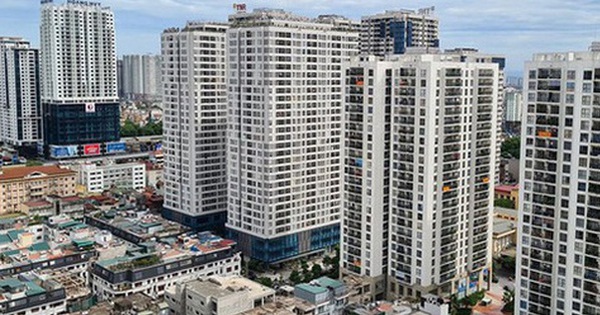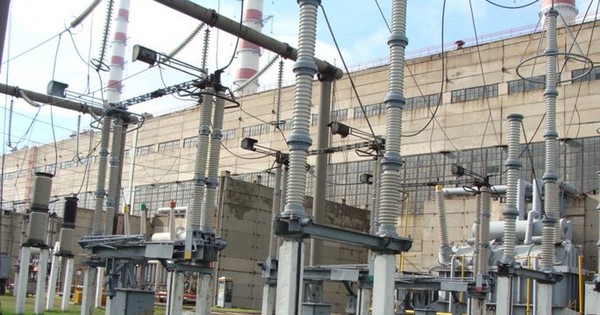Elon Musk – billionaire business with spontaneity and belief
The richest man in the world acts on his whims, personal preferences and belief that he is 100% right.
When Twitter negotiated a sale to Elon Musk last month, the social network laid out an acquisition process. However, the richest person in the world does the opposite. He has no financial plans or how to manage Twitter, Musk told a group of close friends.
To get $44 billion to buy this social network, he also only turned to acquaintances, including Jared Birchall – director of the Musk family investment fund and Alex Spiro – his personal lawyer. And when Twitter turned down his offer, Musk pressured him with a series of tweets.
Tech billionaires like Bill Gates, Jeff Bezos or Larry Page often make long-term plans and manage their affairs through a network of lawyers, media experts, and advisors. But not Musk.
Survey of New York Times With more than 30 new and old employees, investors and people who have worked with him, the billionaire acts on his whims, personal preferences and belief that he is 100% right. While Musk has proven successful in electric vehicles, space and artificial intelligence, he often relies almost entirely on his own intentions and the opinions of a small group of people.

Elon Musk at a SpaceX event in 2018. Photo: NYT
To do this, Musk built a team of only 10 trusted people, always agreeing and executing the plan with him. That is the younger brother of Kimbal Musk, Birchall, Spiro and some other leaders. To execute his ideas, Musk was constantly creating new companies, mostly structured in such a way that he had control. Musk’s trusted lieutenants are also often present in many of his companies.
Once Musk has decided on each company’s key projects, he takes over to ensure his vision is realized. He controlled from the smallest things, making engineers at Tesla and SpaceX both admire and fear.
Musk acts in a way that “only the most confident leaders dare,” said Tim Draper, a venture capitalist who has invested in Tesla and SpaceX. At a 2018 forum, Musk explained that he acts in an improvised manner. This is a lesson he learned more than 25 years ago when he founded his first company, Zip2.
“I don’t really have a business plan,” he said. “I had a plan when I founded Zip2. But things always went wrong. So after that I didn’t bother making plans.”
Last week, Twitter CEO Parag Agrawal also told the social network’s more than 7,000 employees that after Musk took over, “we don’t know what direction the company will go.”
Take control
Musk was born in Pretoria, South Africa and was interested in computers from an early age. After graduating from university in Canada, he moved to the United States in 1992, earned a degree in economics and physics from the University of Pennsylvania, and then entered the PhD program in physics at Stanford University.
But almost immediately, Musk left Stanford to pursue a business career. His first company – Zip2 – was founded in 1995 with his younger brother Kimbal. Zip2 was later acquired by Compaq for more than $300 million.
In 1999, Musk helped found X.com, the forerunner of the payment service company PayPal. At that point, he began to announce business decisions, even when employees were unprepared.
During a live TV show that year, for example, Musk said the company would guarantee all deals in eBay auctions. It was also the first time his engineers heard about the feature. They had to “put their feet on their necks” to realize this feature.
In 2000, the X.com board of directors and Peter Thiel fired Musk over disagreements over the direction of the company. This was a painful departure for Musk, which made him soon realize that he should be the sole person in charge of future projects.
When he built new businesses, like founding SpaceX in 2002 and investing in Tesla in 2004, he made sure he could fulfill his desires at each company. He poured more than $100 million of his own money into SpaceX in the early years and now takes control of the company. At Tesla, Musk now owns 16%. He also put on the Board of Directors friendly faces, including his younger brother and Antonio Gracias – an investor and longtime friend of the billionaire.
“It’s okay to put all your eggs in one basket, as long as you control what happens to that basket,” he told Inc. magazine in 2007.
Currently, Musk controls or is related to at least 12 companies, both listed and privately held. Musk’s net worth is about $250 billion.
Closed circle
Because he founded many companies, Musk often hires people with the ability to put in the effort. One of them is Mary Beth Brown – who was recruited in 2002 to be Musk’s assistant. After that, she was responsible for both communications and finance for SpaceX and Tesla, as well as helping Musk manage his personal life.
That same year, Musk recruited Gwynne Shotwell to SpaceX. Shotwell is one of Musk’s most engaged employees. At a 2018 conference, she said, “When Elon says something, you have to stop and don’t immediately say ‘It’s impossible’ or ‘There’s no way it can be done. I don’t know. ‘. Instead, you have to think about it and find a way to get it done.”
Changeable leadership style
By 2016, Musk’s business empire was booming. However, in times of great pressure, billionaires sometimes reveal the wrong side of their management style.
In June 2016, Tesla was dealing with the fatal crash of Joshua Brown, who was using Tesla’s Autopilot technology when he crashed into another vehicle on the highway. During a call between Tesla and the National Highway Traffic Safety Administration, when the agency’s leader was explaining that he would open an investigation into Autopilot, Musk interrupted, shouting into the phone that he would sue if the investigation is carried out. The next day, Musk lowered his voice and the investigation proceeded as usual.
Musk’s personal decisions often make employees miserable. In September 2016, he flew to Mexico, announcing SpaceX’s plan to send people to Mars. But until he stepped onto the stage, the leaders under him didn’t know what he was going to say.
The engineers at Tesla weren’t much better either. In 2016, they were shocked by Musk’s tweet about a new version of the Autopilot system coming soon. In 2017, they were surprised by the boss’s tweet about the more advanced version called Full Self Driving will be released after 6 months.
Year of upheaval
2018 was a year to forget for Musk, when his improvisational style took his toll. After having to overhaul the Model 3, Musk said he was tired of driving Tesla in the face of public pressure. In August of that year, he emailed the company’s board of directors with the content: “Will offer to buy Tesla for $ 420”, but there are few details on how to arrange capital.
Those close to Musk are excited, especially his younger brother Kimbal. A few days later, he announced on Twitter: “I’m considering buying Tesla at $420 a share. Money is guaranteed.”
However, this amount never materialized. Tesla shareholders sue him for securities fraud. A month later, the US Securities and Exchange Commission (SEC) convicted Musk of this crime. Musk later settled with the SEC and was fined $20 million.
“Musk’s business style is to minimize documents,” said Deepak Ahuja – Tesla’s CFO in 2018, “He really does business based on verbal commitment and shaking hands.”
Fun to the fullest
Musk has an unwavering fondness for Twitter. Every day, Musk often posts dozens of tweets, with all kinds of content, from mocking Tesla short sellers, sharing thoughts on the pandemic, politics to Dogecoin.
In 2020, Musk disbanded Tesla’s communications division, in part because he felt he could communicate directly with fans and customers via Twitter. This is also the reason Musk wants to buy this social network. He created three new companies called X Holdings I, II and III, all involved in the financial arrangements for the transaction with Twitter.
After striking a deal with Twitter last week and celebrating with a tweet full of hearts and rockets, Musk appeared in Boca Texas to discuss a new SpaceX rocket engine. Two days later, he excitedly wrote: “Let’s make Twitter a fun place to the fullest.”
Ha Thu (according to NYT)
at Blogtuan.info – Source: vnexpress.net – Read the original article here



